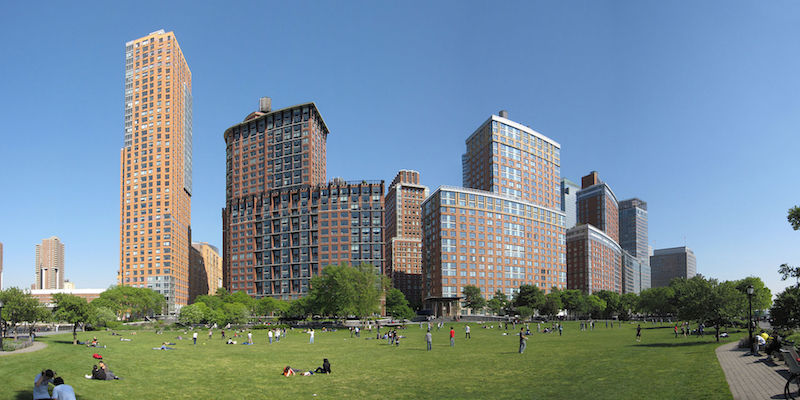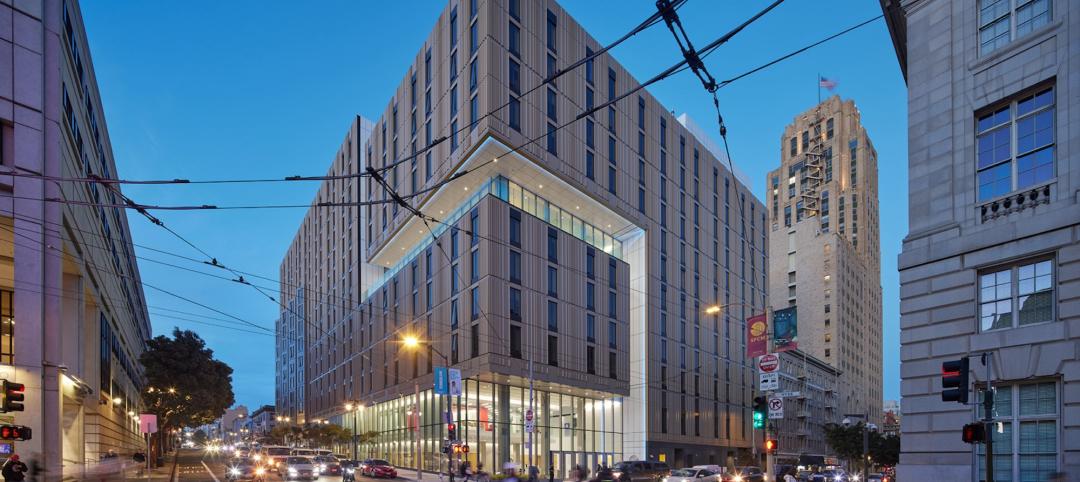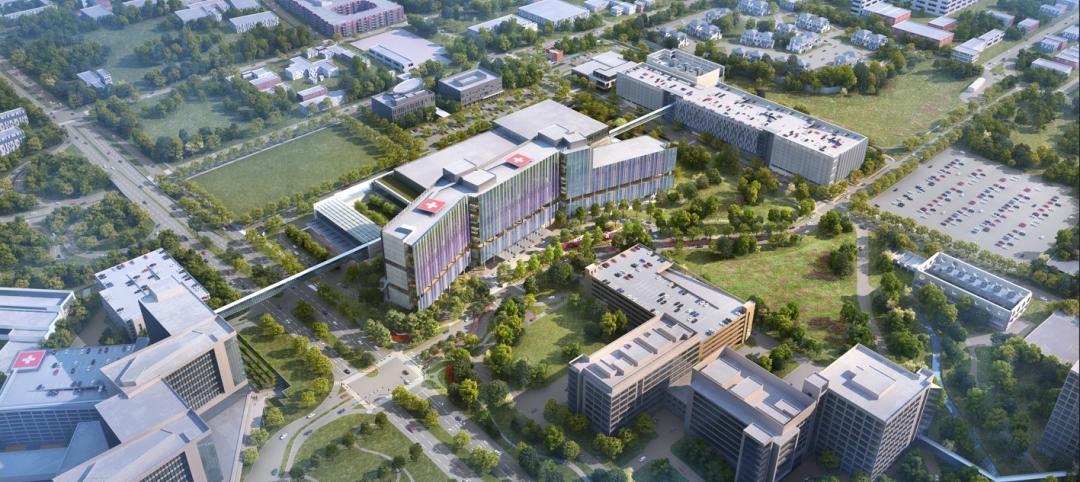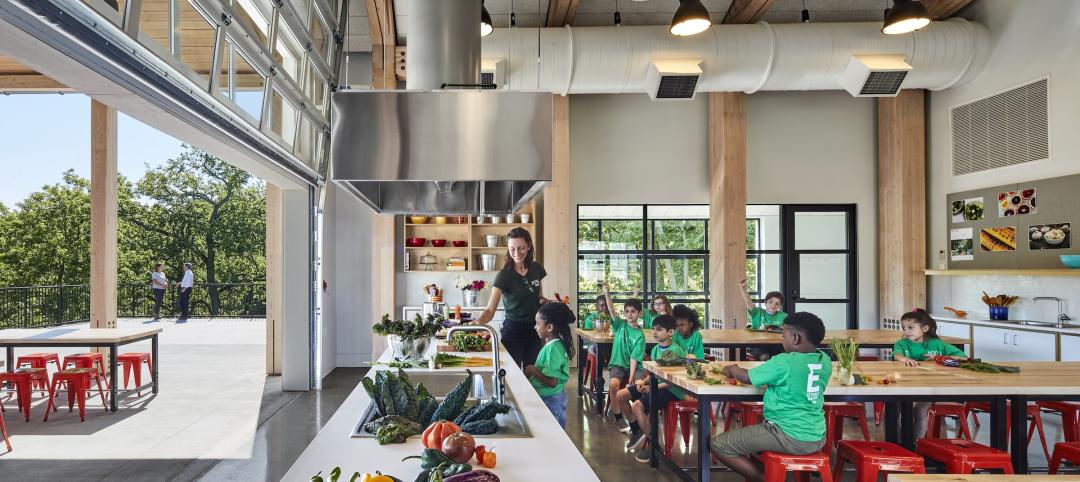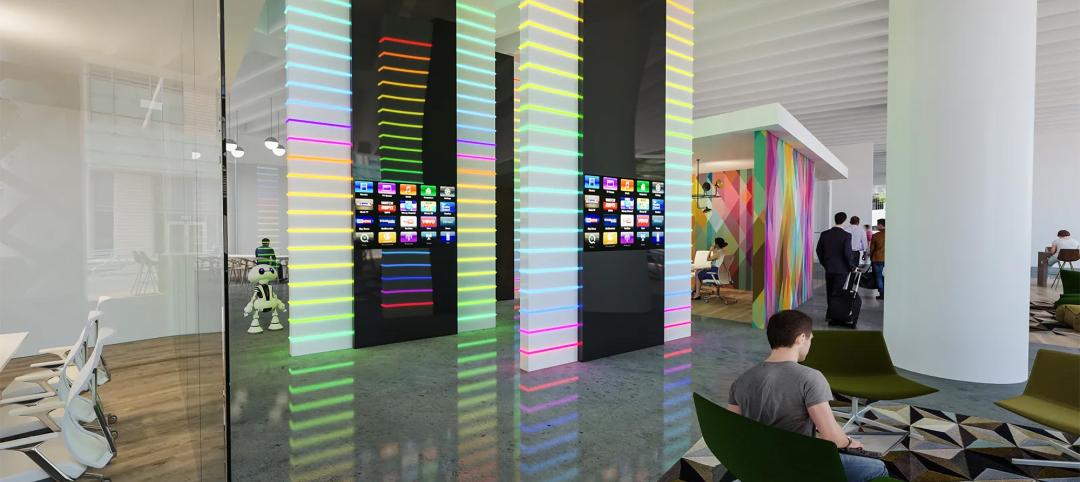The skyrocketing cost of housing in major U.S. cities is inspiring new concepts to make apartment living more affordable for Millennials, GenXers, and Boomers.
TOP 110 MULTIFAMILY ARCHITECTURE FIRMS
Rank, Firm, 2015 Revenue
1. Perkins Eastman $50,700,000
2. CallisonRTKL $40,466,000
3. Solomon Cordwell Buenz $38,438,935
4. Skidmore, Owings & Merrill $27,342,575
5. Niles Bolton Associates $27,300,000
6. NORR $24,325,290
7. Stantec $24,249,806
8. Robert A.M. Stern Architects $22,990,000
9. WDG $22,938,000
10. Harley Ellis Devereaux $18,300,000
TOP 80 MULTIFAMILY CONSTRUCTION FIRMS
Rank, Firm, 2015 Revenue
1. Lendlease $2,046,256,000
2. Suffolk Construction Co. $1,197,566,204
3. Clark Group $996,208,028
4. AECOM $942,100,000
5. Balfour Beatty US $818,343,386
6. Turner Construction Co. $691,436,732
7. Plaza Construction $600,000,000
8. Hunter Roberts Construction Group $569,747,283
9. Swinerton Inc. $549,000,000
10. Andersen Construction $454,800,000
TOP 50 MULTIFAMILY ENGINEERING FIRMS
Rank, Firm, 2015 Revenue
1. Jacobs $203,161,333
2. AECOM $200,900,000
3. Arup $168,783,060
4. Thornton Tomasetti $67,382,221
5. Syska Hennessy Group $32,420,857
6. Burns & McDonnell $24,341,832
7. Vanderweil Engineers $23,508,800
8. Smith Seckman Reid $20,189,000
9. DeSimone Consulting Engineers $19,799,641
10. Dewberry $19,159,460
MULTIFAMILY GIANTS SPONSORED BY:
“Affordable housing is the major concern in cities today,” says Brian Ward, AIA, LEED AP, Director of Design, Niles Bolton Associates. Ward predicts cities will be gearing up to legislate housing affordability into zoning codes. He says hard-pressed municipalities need to establish “an honest dialogue” among city leaders, the lending community, designers, and real estate interests as the way to achieve solutions that sustain growth while providing housing opportunities for the middle-class.
To address the affordability problem and attract tenants, owners and developers are experimenting with smaller and smaller units, amenity-rich environments, and “co-living” concepts.
“We’re seeing the evolution of micro-units into what some are unceremoniously referring to as adult dorm rooms, but the impact on the overall multifamily residential market is undeniable,” says Marc Fairbrother, AIA, LEED GA, NCARB, Vice President at CallisonRTKL.
This concept has reached a new level with the recent opening of WeLive—furnished, flexible, small units with large communal areas and social amenities. They are being introduced by co-working space provider WeWork in the New York City and Washington, D.C., metros.
Fairbrother says the current housing paradigm is aimed at adapting space to better fit user needs and facilitating social connection. “Many of our projects are about incorporating residential more fluidly into the urban fabric, with connectivity to retail, dining, and entertainment,” he says. “It’s also a more sustainable approach to achieving density in urban areas.”
onward and upward with AMENITY SPACES
Individual units may be shrinking, but specialty amenity spaces are flourishing.
The new Millennium on LaSalle will offer a musical practice space with a recording booth as just one of its planned unique spaces. The 216-unit apartment tower, an adaptive reuse of a 14-story Jenney & Murdie office tower (completed in 1902) in the Chicago Loop, is being designed by FitzGerald Associates Architects. The conversion includes the addition of a top-floor amenity level and landscaped roof deck, a basement that incorporates a large screening room, two console game media rooms, a computer lounge, and a dog washroom.
“Everyone is trying to find that next appeal, whether it’s a maker space, a bike lounge, or a place to play and record your musical instrument,” says Mike DeRouin, CSI, CCCA, the design firm’s President. “But there’s another segment of the population that just wants to live in a quiet building. We’ve also got several clients that are building small boutique apartment buildings with limited amenities that are close to transit.”
Because convenience and simplicity are increasingly valued by urban dwellers, transit-oriented developments may be catching on. “People want to live close to mass transit, where they work and where they play, without relying on a car, and they’re willing to live in a smaller apartment to do that,” says Stuart Lachs, AIA, LEED AP, Principal, Perkins Eastman.
TODs are also cutting back voluntarily on their parking spaces. “In some cases, we are designing less than one parking space per dwelling unit,” says Lachs. “Municipalities used to set a minimum number of parking spaces; now they are setting maximums.”
ENLIVENING SPORTS AND ENTERTAINMENT DISTRICTS
Victory Park, a $3 billion residential and commercial district northwest of downtown Dallas, is capitalizing on the opportunity to leverage one of the nation’s most popular sports and entertainment venues. Anchored by American Airlines Center, home to the NBA Dallas Mavericks and the NHL Dallas Stars, the 75-acre development encompasses more than a thousand residences. Four additional high-rise residential buildings under construction will add nearly 2,000 upscale apartments to the district by 2018.
“We’ve realized that the areas surrounding the facilities that house our favorite teams and performers need to function on multiple levels to truly be successful,” says Tom Brink, AIA, LEED AP, Vice President, CallisonRTKL. “We need to take these developments from ‘game day’ to ‘every day’ destinations.” Multifamily residential can help achieve that goal, he says.
In Los Angeles, three luxury residential towers rising in the heart of downtown’s South Park neighborhood seek to transform the city from an in-and-out destination to a permanent dwelling place. Located across from Staples Center and the LA Live entertainment complex, Oceanwide Plaza will house 504 condominiums, a 183-key hotel, and event spaces. The trio of towers—slated for completion in late 2018—rise from a 200,000-sf retail podium surrounded by a large lawn, children’s playground, pool, and running track.
CallisonRTKL’s Brink notes that our economy and culture are heavily influenced by the sports and entertainment industry. To make residential developments based on sports and entertainment feel like home, he says, “We have to address everything from logistical concerns, such as careful integration of parking and security, to the livability and authenticity of the community.”
RETURN TO THE GIANTS 300 LANDING PAGE
Related Stories
Student Housing | Feb 19, 2024
UC Law San Francisco’s newest building provides student housing at below-market rental rates
Located in San Francisco’s Tenderloin and Civic Center neighborhoods, UC Law SF’s newest building helps address the city’s housing crisis by providing student housing at below-market rental rates. The $282 million, 365,000-sf facility at 198 McAllister Street enables students to live on campus while also helping to regenerate the neighborhood.
MFPRO+ News | Feb 15, 2024
UL Solutions launches indoor environmental quality verification designation for building construction projects
UL Solutions recently launched UL Verified Healthy Building Mark for New Construction, an indoor environmental quality verification designation for building construction projects.
MFPRO+ News | Feb 15, 2024
Nine states pledge to transition to heat pumps for residential HVAC and water heating
Nine states have signed a joint agreement to accelerate the transition to residential building electrification by significantly expanding heat pump sales to meet heating, cooling, and water heating demand. The Memorandum of Understanding was signed by directors of environmental agencies from California, Colorado, Maine, Maryland, Massachusetts, New Jersey, New York, Oregon, and Rhode Island.
MFPRO+ News | Feb 15, 2024
Oregon, California, Maine among states enacting policies to spur construction of missing middle housing
Although the number of new apartment building units recently reached the highest point in nearly 50 years, construction of duplexes, triplexes, and other buildings of from two to nine units made up just 1% of new housing units built in 2022. A few states have recently enacted new laws to spur more construction of these missing middle housing options.
Green | Feb 15, 2024
FEMA issues guidance on funding for net zero buildings
The Federal Emergency Management Agency (FEMA) recently unveiled new guidance on additional assistance funding for net zero buildings. The funding is available for implementing net-zero energy projects with a tie to disaster recovery or mitigation.
Hospital Design Trends | Feb 14, 2024
Plans for a massive research hospital in Dallas anticipates need for child healthcare
Children’s Health and the UT Southwestern Medical Center have unveiled their plans for a new $5 billion pediatric health campus and research hospital on more than 33 acres within Dallas’ Southwestern Medical District.
Architects | Feb 13, 2024
Pierluca Maffey joins Carrier Johnson + Culture as new Firmwide Head of Design
Carrier Johnson + Culture (CJ+C) has hired Pierluca “Luca” Maffey, International Assoc. AIA, as the firm's new Firmwide Head of Design and Design Principal.
K-12 Schools | Feb 13, 2024
K-12 school design trends for 2024: health, wellness, net zero energy
K-12 school sector experts are seeing “healthiness” for schools expand beyond air quality or the ease of cleaning interior surfaces. In this post-Covid era, “healthy” and “wellness” are intersecting expectations that, for many school districts, encompass the physical and mental wellbeing of students and teachers, greater access to outdoor spaces for play and learning, and the school’s connection to its community as a hub and resource.
Office Buildings | Feb 13, 2024
Creating thoughtful tech workplace design
It’s important for office design to be inspiring, but there are some practical principles that can be incorporated into the design of real-world tech workplaces to ensure they convey an exciting, sophisticated allure that accommodates progressive thinking and inventiveness.
Airports | Feb 13, 2024
New airport terminal by KPF aims to slash curb-to-gate walking time for passengers
The new Terminal A at Zayed International Airport in the United Arab Emirates features an efficient X-shape design with an average curb-to-gate walking time of just 12 minutes. The airport terminal was designed by Kohn Pedersen Fox (KPF), with Arup and Naco as engineering leads.


